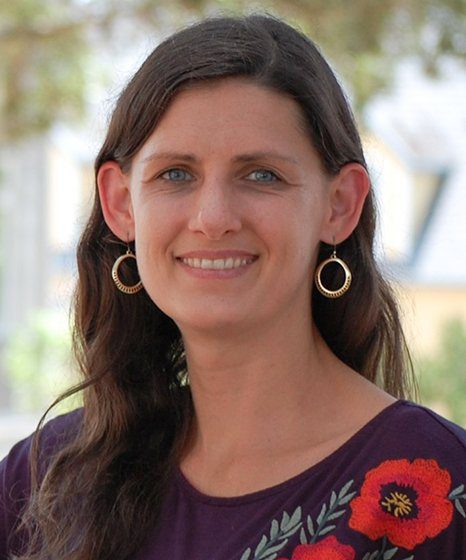
Guest Author – Lynn Buzzard

Jesus, therefore, again groaning in himself came to the grave. And Jesus said, “Take away the stone.” . . . And when he had thus spoken he cried with a loud voice, “Lazarus, come forth.” And he that was dead came forth, bound hand and foot with grave clothes; and his face was bound about with a napkin. Jesus said unto them, “Loose him and let him go.”
John 11:38-44
For sheer astonishing miracles, you can have your feeding of the five thousand or walking on water. I’ll take the raising of Lazarus. Here was an irrefutable sign of Jesus’ authority and power over all creation. And, of course, it is a sign or symbol of our Lord’s ability to bring new life to us—his unique ability to break through the powers of death and decay, to shatter insurmountable barriers. This unique power of our Lord was the reason people wanted to get the hurting and sick to our Lord. He’s the “star,” the “rainmaker.” Indeed we must recognize the limits of our own capacity to heal and bring life to people and instead realize we need to bring people to Jesus who alone can proclaim “Lazarus come forth.” We try that ourselves so often, pleading and begging for life to break into dead relationships, broken lives, hostile spirits, failed legal systems, corrupt officials. We holler and holler—at clients, maybe family members “come forth,” “come to life”—and there is only stony silence. No one walks out of their graves. Only Jesus brings life.
However, it is often instructive to look not only at the main characters, but also to watch the supporting cast. In American football, sometimes it is especially interesting to watch not just the quarterback and star receiver, but the “men in the trenches” with the blocking. Or in a play or film, to note the role of the “supporting cast” whose star quality is less, but whose roles often “make” the scene. In America, there is a film award annually for the “Best Supporting” actor and actress.
That is why in this story of Lazarus we might not only see Jesus in that dynamic moment calling forth life, but be impressed with the fact that the disciples were not to be mere spectators at the tomb. They too had a task, a supporting role—symbolic of the ministry God gives us. At the beginning, our Lord tells his followers to “Take the stone away.” Surely while we cannot call forth life, we are called by our Lord to prepare the way—to roll away stones that stand between the “dead” and our Lord’s call. So many people we deal with are surrounded by “stones” that block the call of our Lord. Maybe those stones are intellectual problems, or painful experiences with churches or believers, or ignorance—whatever they are, one task we have is to try and clear the path for the call of the Lord—to help them “hear” the word of life. Most persons who come to know the Lord do so in the context of some believer who helped them “hear”—whose care, compassion, and encouragement opened their ears. The American lawyer John Grisham’s legal novel The Testament illustrates how the life of a single person whose peace and confidence in God, combined with a loving challenge to a terribly lost and confused lawyer, was the door through which the Lord walked into his life. She rolled away the stone. It is a great privilege our Lord gives us, to be a part of that process of new life.
After Lazarus has come forth, Jesus gives his followers another task, “Unbind, loose him, let him go.” Here comes Lazarus to new life, but as he stumbles from the grave, he is still bound up with the trappings of death—grave clothes that stink of death and decay. The disciples couldn’t bring life, but now that life has come, they can help him to be free of the old bondage. What a wonderful ministry that is—to be called by our Lord to help people really be free in Christ and to get rid of the old and put on the new. Perhaps too often we rejoice in new life and then quickly move on to another “target”—and forget to minister to those with new life. “All things are new” but there is still an element of “grave clothes”—old bondages that need to be cast off. Messing with grave clothes may not always be a “nice” antiseptic job—but it is necessary for the new life to be able to dance and sing with joy. We lawyers often deal with people in times of crisis with mixtures of hopes and fears, however often they need our ministry. Sometimes, it’s rolling away the stones. Other times it’s helping people get free of the old—”unbinding them” and helping them to the fullness of Christ.
So, let us watch with silence and awe as our Lord calls forth life, but let us also hear his commissions: roll away stones and set people free! Be part of the play—a best supporting actor or actress.
——————-
***Please feel free to forward this to your friends. To subscribe to the CLS Devotional (emailed twice a month), please click here and subscribe to the CLS publications of your choice or email us at clshq@clsnet.org.***
This article [slightly edited] comes from the “No Higher Calling” devotional published by Advocates International, CLS’ international sister ministry. Lynn Buzzard is a former professor at Campbell Law School and the former executive director of Christian Legal Society.

Mike Schutt
Director, CLS Law School Fellows

Alanna Walker
Grants Coordinator

Michelle Williams
Law Student Ministries Coordinator
GET UPDATES
The views expressed on the CLS Blog are the views of the individual authors and do not necessarily reflect the positions of Christian Legal Society.
The purpose of the CLS Blog is to generate discussion with a free exchange of ideas and opinions.
▦ |CLS - Christian Legal Society © 2025|














































